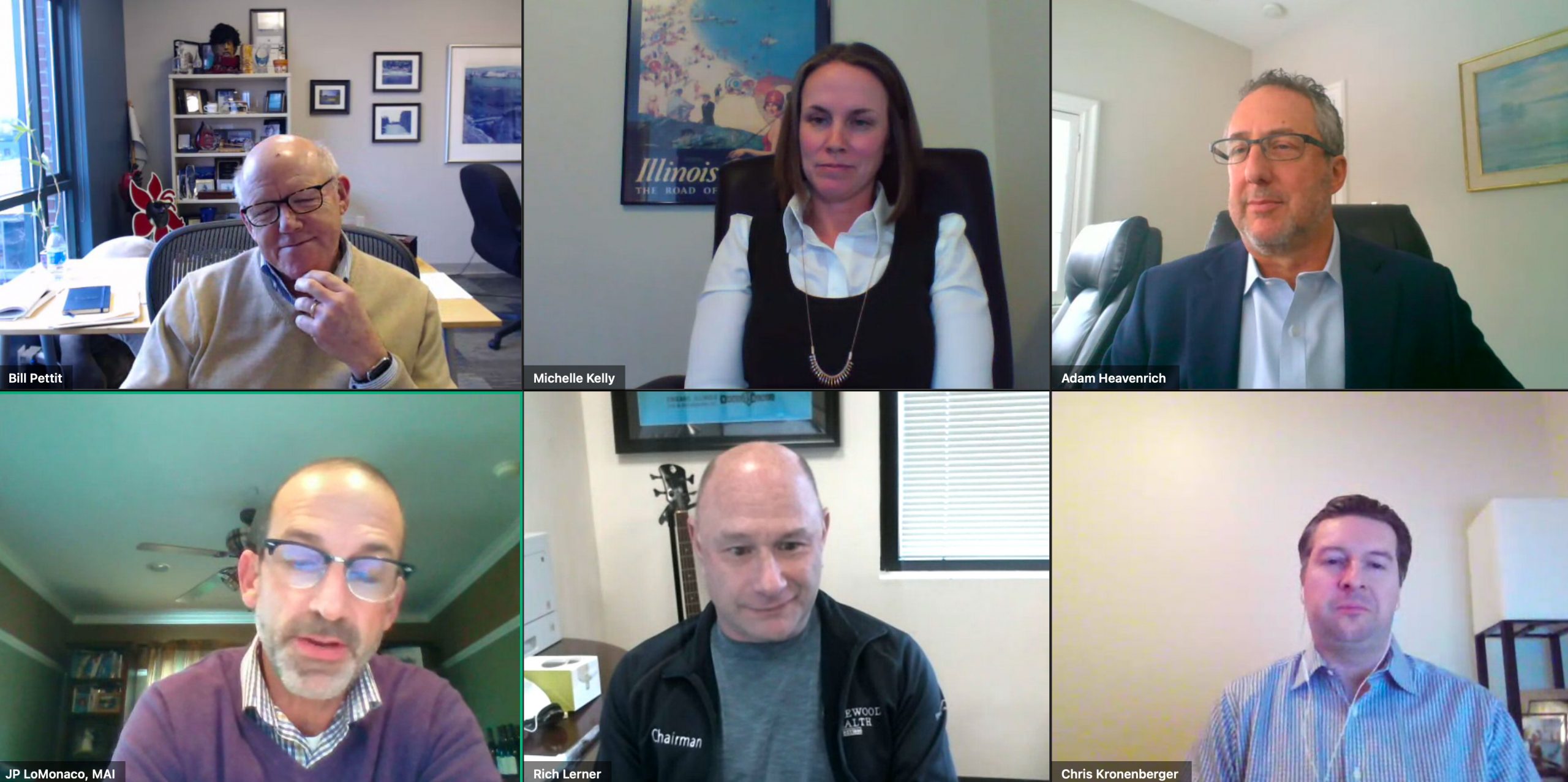Seniors housing investors may be switching from development to acquisitions in the near term, as highly motivated sellers seek to unload existing properties at a lower price than the cost of building a new community.
The prospect of highly motivated sellers has largely come as a result of the stresses of operating seniors housing during a global pandemic.
“We’re starting to see valuations that are well below what we can develop for,” said Bill Pettit of R.D. Merrill Co. “If it’s the right business model and the right locations, we’ll be much more active on the acquisitions side moving forward.”
Pettit’s comments came during a webinar entitled “Seniors Housing Valuation Outlook: What’s Ahead for 2021?” The event, held Thursday, Jan. 28, also included Rich Lerner of Housing & Healthcare Finance, Adam Heavenrich of Heavenrich & Co., Michelle Kelly of National Health Investors (NHI), Chris Kronenberger of Blue Moon Capital Partners and moderator JP LoMonaco of Valuation & Information Group.
“Value by nature is a long-term concept,” said LoMonaco. “Value is created by the anticipated benefits of ownership over the long term. But short-term issues can cause short-term impacts on value.”
LoMonaco noted that the acquisitions market for seniors housing was active going into 2020, screeched to a halt for the second quarter as the pandemic hit, slowly recovered in the third quarter and was active once again by the end of the year. Seniors housing acquisition volume was down 48 percent year over year, according to Real Capital Analytics.
“The pandemic created a lot of stresses to the system, both financial and operational with staffing pressures,” said Heavenrich. “There was a higher motivation for sellers to come to the table. We’ve gotten more comfortable with pricing, as the owner-operators and banks alike are ready to sell.”
Kelly says that NHI generally grows through acquisitions already, and plans to continue doing so through the pandemic. However, the stresses have changed what the company looks for in an acquisition opportunity. In particular, the REIT is being very careful on who it chooses for operational partners.
“We’re relatively conservative, so if another pandemic hits, our operators can weather the storm,” she said.
For some acquisitions, NHI is utilizing short-term management agreements that turn into triple-net leases once the property is stabilized, she added.
“If we’re looking at value-add plays, we’re looking at expenses. Can the new operator come in and get some immediate expense savings? That’s something we can underwrite. If you’re looking for lease-up, that’s tougher to buy into right now. We don’t want to buy something that will be upside down within the first couple months. We want cash flow that’s relatively certain and sustainable.”
Lerner said valuations should be based on historical occupancy at a community — disregarding the depressed levels as a result of the pandemic — but also take into account long-term increased expenses. For example, some expenses related to COVID-19 such as personal protective equipment (PPE) may remain intact after the virus is a thing of the past.
“We look at the cash flows and we look to see if there’s been any real systemic change in occupancy once we’re out of this. Do you have the cash to get you through the dip? We want to make sure occupancy is holding at least at a break-even level.”
In one of the biggest transactions to start the year, Blue Moon Capital Partners teamed up with Áegis Living to buy 10 properties that Healthpeak owned and Áegis operated for $350 million.
According to Kronenberger, Blue Moon saw a perfect opportunity. Healthpeak was highly motivated, looking to sell off the bulk of its seniors housing portfolio. Meanwhile, Blue Moon was an existing partner of Áegis.
He predicted that these large-scale portfolio transactions may be more common in 2021 than one-off properties, as sellers look to divest multiple properties at once.
“In one-offs, there’s a lot more risk to net operating income and cash flow. It wouldn’t surprise me to see more portfolio transactions than one-offs.”
To watch a recording of the webinar, click here.
— Jeff Shaw

